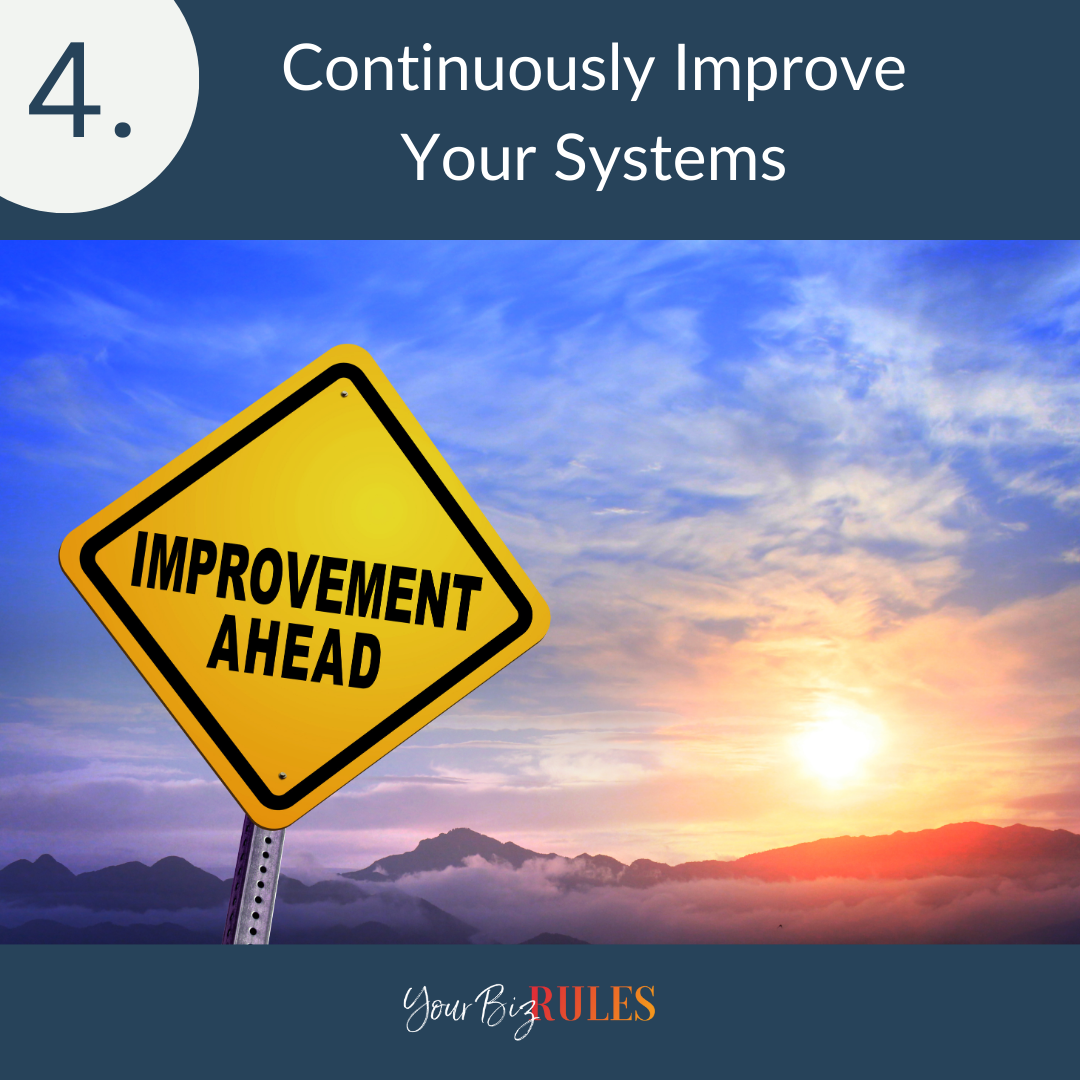How To Scale Your Business By Leveraging The Power of Systems
Summary: In the entrepreneurial world, it's easy to get caught up in the day-to-day hustle and lose sight of the bigger picture. It's a story I hear often: hardworking entrepreneurs getting bogged down and burnt out with little time for themselves.
This is where the magic of leveraging the power of systems comes into play. This is a way to transform your daily grind into a streamlined path toward growth and efficiency. Embracing systems is about more than staying organized. It also sets the stage for your business to thrive in ways you've only imagined.
Understanding how systems are essential for your business and how they can be your ticket to scaling up and standing out in today's competitive market is important.
Understanding the Power of Systems
At the heart of every thriving business lies a fundamental truth: the power of systems is not just an advantage. It is a necessity.
In our day-to-day interactions with entrepreneurs, we consistently emphasize the pivotal role of systems. Systems are much more than a series of processes or a checklist. They are the bedrock upon which scalable, efficient businesses are built.

Leveraging the power of systems is about creating a framework that transforms complexity into clarity and chaos into order.
When systems are well-implemented, they act as a roadmap guiding your business through the twists and turns of growth and market changes.
Think of systems as your business's GPS. They help you navigate through uncharted territories of market demands, customer needs, and operational challenges. With these systems in place, you're not just reacting to the business world but proactively managing and scaling your enterprise.
But why is this crucial? Without systems, businesses risk stagnation and inefficiency.
The Common Entrepreneurial Pitfall: Lack of Systemization
A recurring theme that often surfaces as a barrier to success is the lack of systemization. It's a pitfall that's easy to fall into, especially in the early stages of business when agility and quick decisions are prized. However, this approach, driven by reaction rather than strategy, can lead to a precarious path of disorganized management and inconsistent outcomes.
This reactive method provides temporary solutions that work for a while but are not a method that will last and grow with the business. Entrepreneurs who are more reactive find themselves dealing with the same issues repeatedly, unable to break the cycle.
The consequences? A business that operates on the edge of chaos. It operates okay, but it struggles to establish a stable foothold. In such a scenario, growth becomes challenging and often unattainable.

As a business looks to grow, this lack of systemization can cap the potential of the business. It stifles innovation, as time and resources are spent putting out fires rather than being channeled into growth and scalability.
This also can lead to a demotivated team as the entire business becomes chaotic and in survival mode.
As your business starts weaving systemization into the workflow, the stability and direction of your business shift. This shifting goes from constantly fighting fires to one where you're building a resilient, scalable infrastructure. This transition is pivotal for any entrepreneur looking to survive and thrive in the dynamic world of business.
The Price of Disorganization
Consider the relentless workloads that come with disorganization. It’s not just about working longer hours but also includes the quality and sustainability of that work. Work becomes a never-ending cycle without clear systems, often leading to burnout.
This isn’t just about the business owner feeling overwhelmed. The entire team faces a similar fate. The result? A workplace culture where stress is the norm, not the exception.
Then there's the matter of missed opportunities.
In the dynamic dance of business, being unorganized is like having two left feet. You’re always a step behind, missing the rhythm of the market and failing to seize opportunities that could be game-changers for your business. It’s about losing that competitive edge that could have been yours with a more structured approach.
The most glaring cost, however, is how disorganization limits your business’s growth potential.
It’s like trying to climb a mountain while carrying unnecessary weight.
The higher you go, the more strenuous it becomes until scaling further feels impossible.
The disorganization also limits the ability to adapt and thrive in an ever-changing business landscape.

Beyond the office, the chaos of an unorganized business spills over into personal life. The stress, the constant juggling, and the never-ending sense of being behind all add up, taking a toll on your well-being and life outside of work.
Without systems, there is no balance where your business drives your dreams forward. Instead, you feel like your business drags you down.
Recognizing the price of disorganization is all about identifying a pivotal turning point. It is where you decide that your business – and your life – deserve the clarity and direction that only well-crafted systems can provide.
Practical Steps to Implement Effective Systems
1. Embrace a Systematic Mindset for Business Success
First and foremost, you need the right mindset. This is not just a list of to-do items sent to everyone on your team.

It is a transformative approach that elevates your perspective from the daily grind to a strategic level.
Yes, it shifts your daily operations. But, more importantly, it is a fundamental shift in how you view and drive your business forward.
You must be prepared to get the information from your head to share with others and make your business run automatically. For some business owners, this is the most challenging point. They NEED to be NEEDED even though they really want the freedom to enjoy life.
2. Document Your Processes
To start leveraging the power of systems, you must begin by thoroughly documenting your existing operations.

You do not have to wait to use the system until it is all documented. But, you have to start with the main points of contact to make a system useful.
Once you start your systems working for you, it will help you understand the current state of your business more fully and pinpoint areas for improvement.
With documentation, you can create a system that works for, not against, your business goals.
3. Delegate Smartly
With a clear understanding of your processes, smart delegation becomes your tool for empowerment.

This step is about task allocation. Pass things from you to your team members with automated systems.
As you entrust your team with more work, they will rise to the occasion, or it will become clear that you need someone who can work within the framework of your systems.
By delegating to others and leveraging the power of systems, you, the business owner, can focus on broader business strategies.
4. Continuously Improve Your Systems
In the spirit of leveraging the power of systems, remember that your systems should evolve with your business.

Regularly assessing and tweaking your systems ensures they remain relevant and effective in supporting your business’s growth.
This ongoing improvement is a testament to the dynamic nature of successful systemization.
The Bright Promise of Leveraging the Power of Systems
When we talk about transforming businesses, leveraging the power of systems takes center stage. This process is not simply a process overhaul but is a revolution in how your business operates.
By embracing systemization, you unlock a world where efficiency isn't just a goal. It is a reality. Scalability stops being a distant dream and becomes an achievable target. The quality of what you offer in your services and/or products gets a significant boost.
But the impact goes beyond just business metrics.
For you, the entrepreneur, it opens up a new way of life. Imagine having the freedom to step back from the nitty-gritty of daily operations and focus on big-picture strategies.
This shift means less stress, more clarity, and the space to cultivate growth and innovation. It's about working smarter, not harder, and watching your business flourish as a result.
Final Thoughts
As we wrap up our discussion, remember this: the essence of transforming from a business that struggles to one that scales with ease lies in leveraging the power of systems.
It’s not about grand overhauls from day one. Start with a simple, manageable step.
Choose one process in your business that needs systemization.
Document it, refine it, and make it efficient. This initial step is your gateway to a journey of enhanced organization, profitability, and scalability.
Your path to business greatness is paved with structured, systematic steps. Each one takes you closer to a future where your business survives and thrives.
So, take that first step today and begin your journey towards a business model that is as sustainable as it is successful. If this sounds like something you are ready for, then let’s chat.

